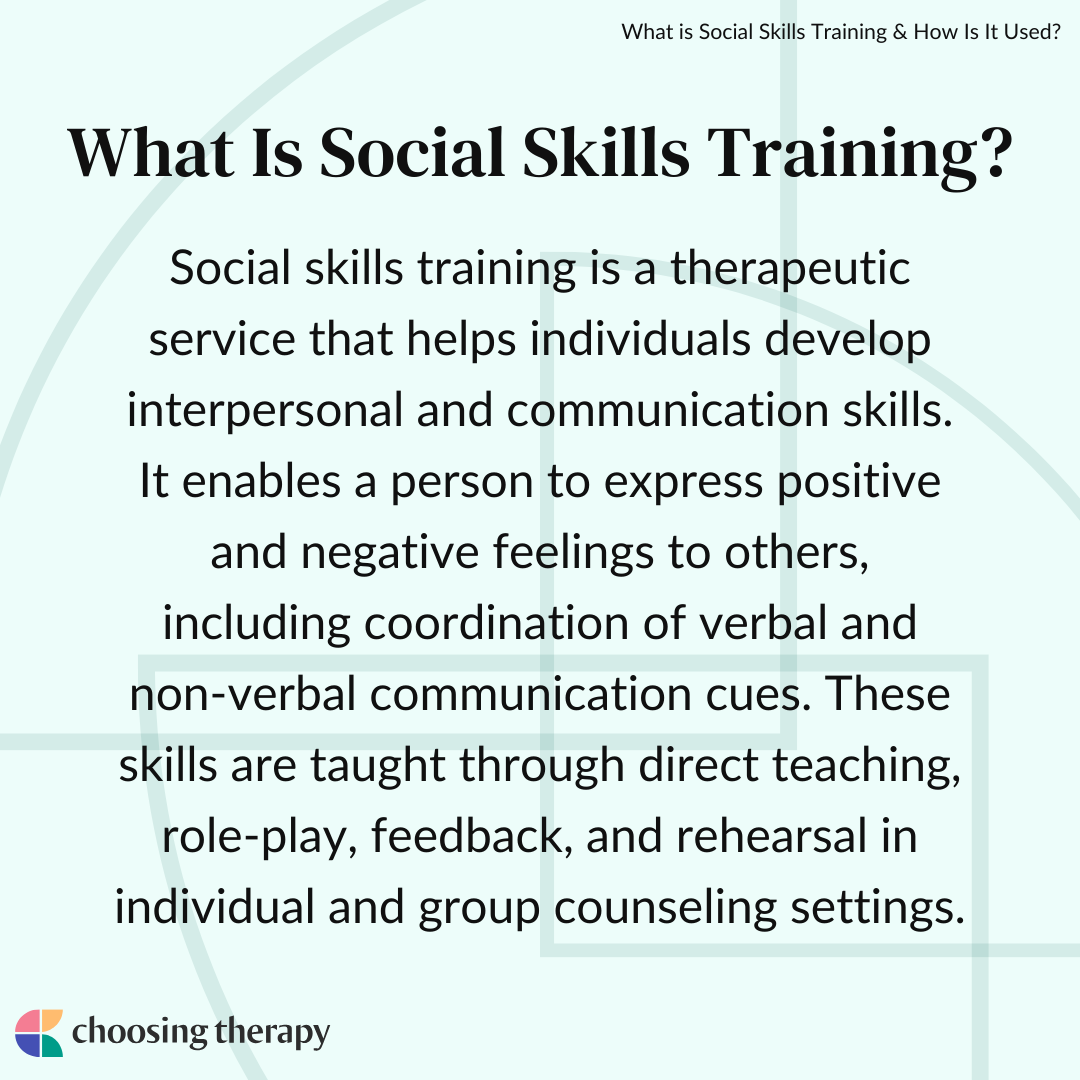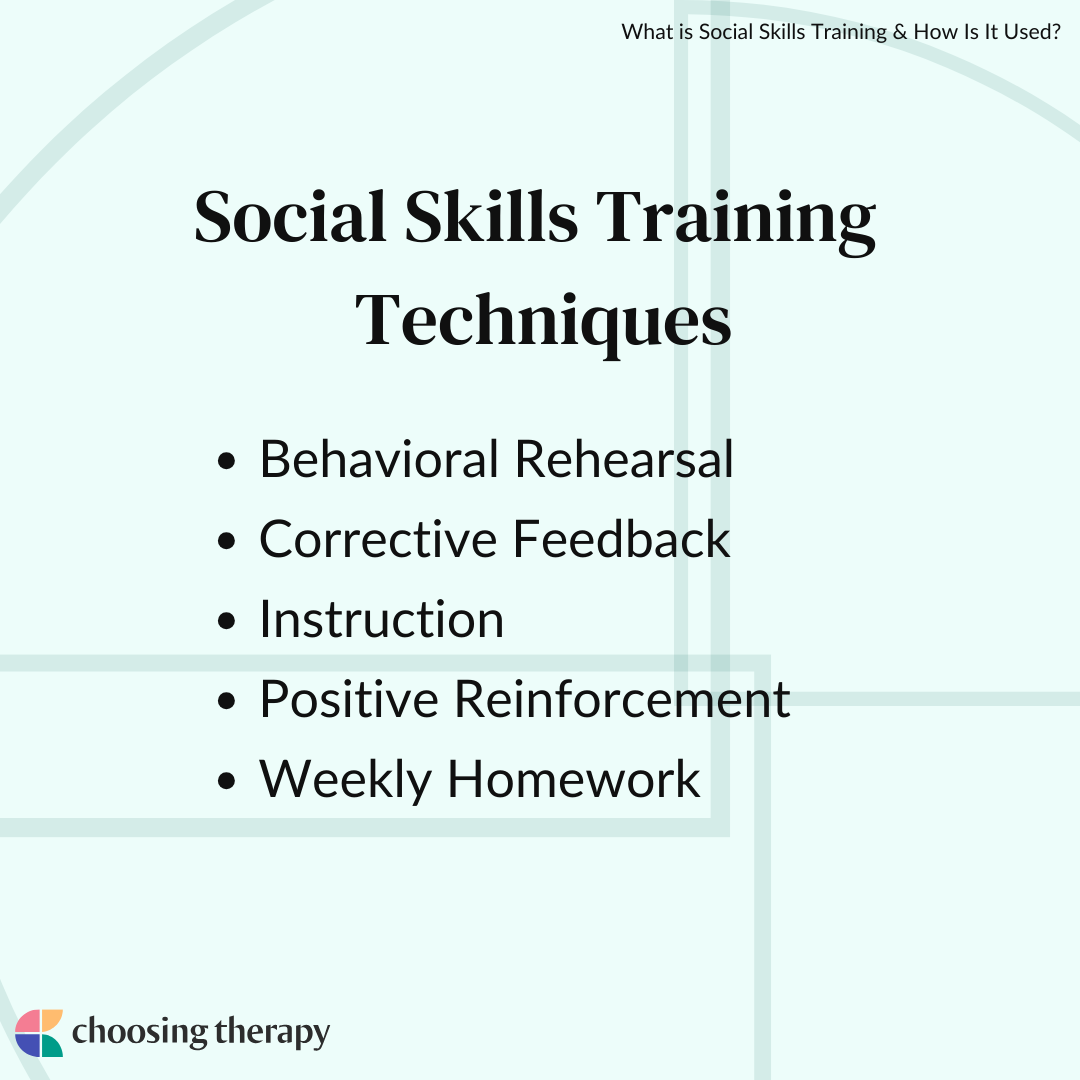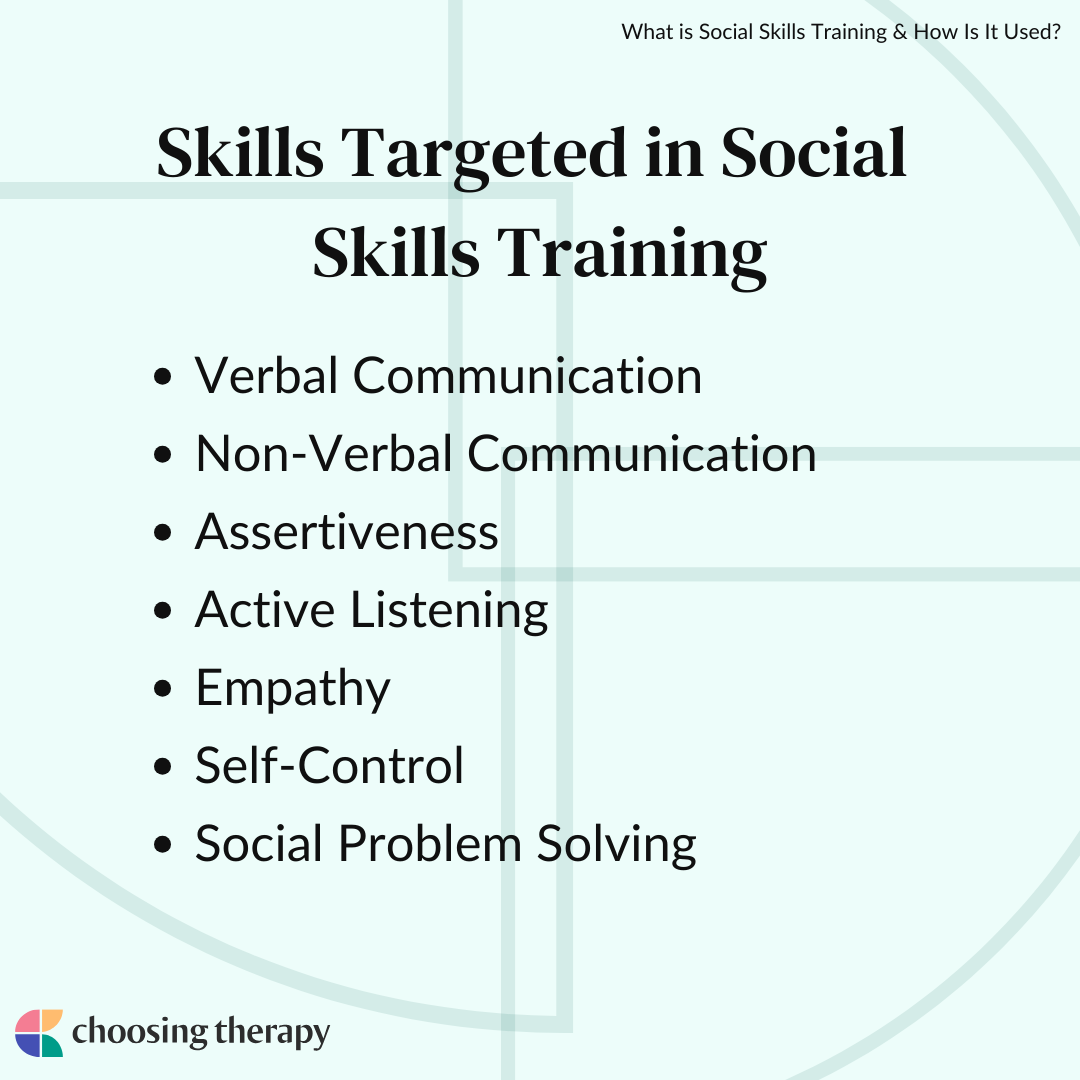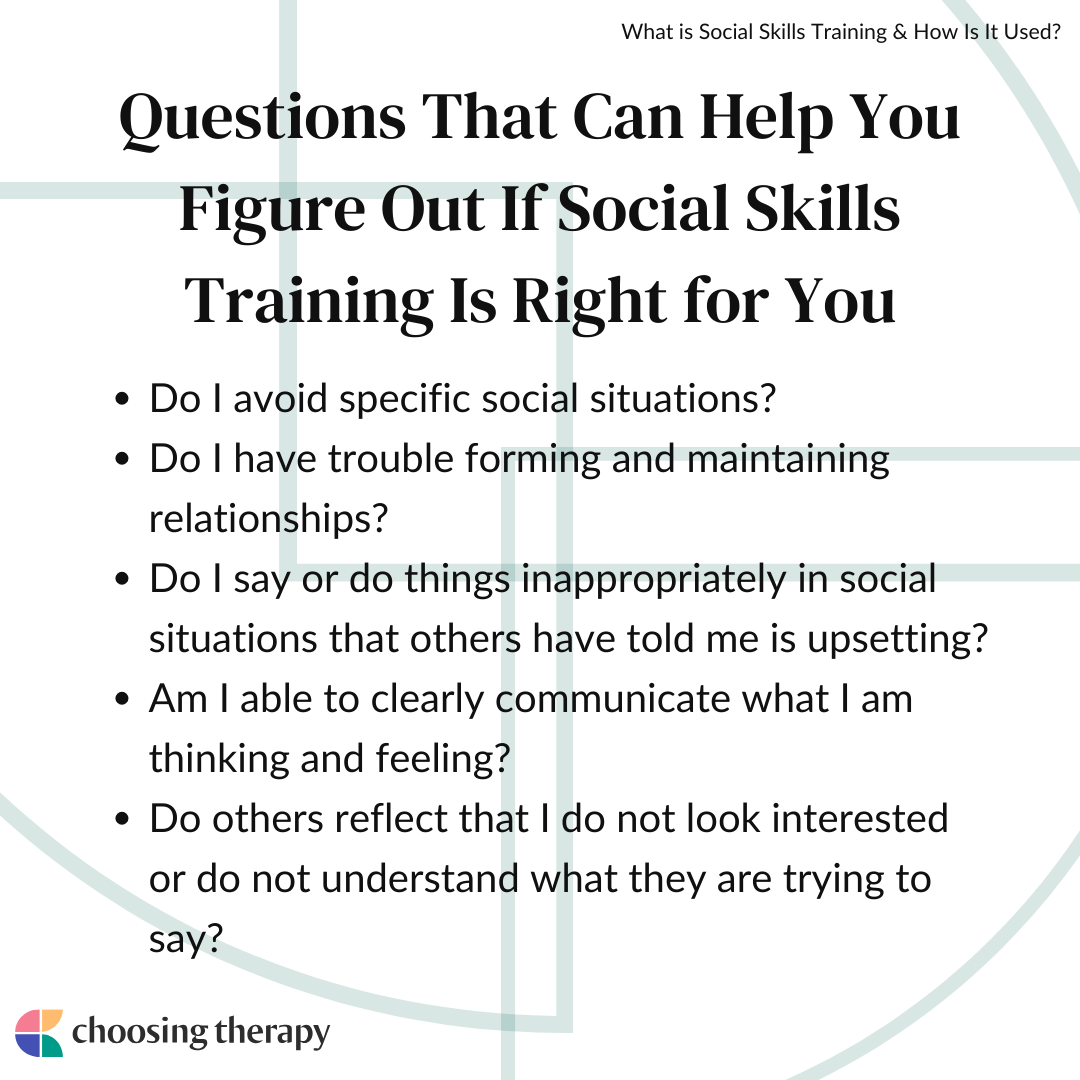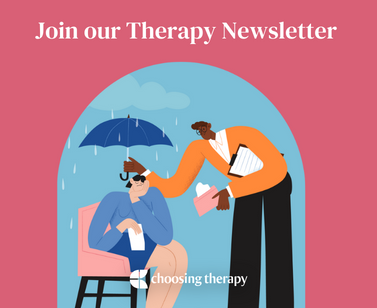Social skills training is a collection of learning activities and behavioral interventions used by therapists, teachers, or other trained facilitators to teach social skills. A continuously growing collection of research supports the efficacy of social skills training in treating adults with schizophrenia, mood disorders, developmental disorders, and autism, amongst other diagnoses.
A therapist can help you build confidence and self-esteem. BetterHelp has over 20,000 licensed therapists who provide convenient and affordable online therapy. BetterHelp starts at $65 per week. Take a Free Online Assessment and get matched with the right therapist for you.
What Is Social Skills Training?
Social skills training (SST) is a therapeutic service that helps individuals develop interpersonal and communication skills. It enables a person to express positive and negative feelings to others, including coordination of verbal and non-verbal communication cues.2 These skills are taught through direct teaching, role-play, feedback, and rehearsal in individual and group counseling settings.
For adults, social skills training focuses on the social skills necessary for a person to thrive in their day-to-day social environments. People who would benefit the most from SST interventions are those who have not developed these skills, need to improve upon skills they previously learned but are not effective, or need to re-learn behaviors lost due to illness or injury.2 SST is a time-limited intervention that can be provided by professionals trained in this service.1
Social Skills Training Techniques
Social skills training begins with a therapist completing a comprehensive assessment to identify an individual’s skill deficits. Assessments can include self-reports, reports from others in the person’s life, the therapist’s observations, and role play. The therapist will likely ask what skills the individual feels could be improved or where they notice challenges in their social interactions.
The goal of the assessment is to identify the treatment targets for social skills training. Once the treatment plan is developed, the therapist will begin to coach social skills through various techniques. The therapist would approach treatment by addressing one need at a time so that the individual receiving the treatment does not feel overwhelmed.3
Social skills training employs the following techniques:
Behavioral Rehearsal
Behavioral Rehearsal is a technique utilized in role-play exercises. Role plays are planned before the session based on a situation that the individual is likely to encounter. It allows the therapist to model the technique first for the individual, and then they practice the skill in a simulated situation.
Corrective Feedback
Feedback is provided immediately following the role-play exercise. Corrective feedback provides one or two suggestions for the individual to utilize to improve their performance in another role play. The therapist provides positive feedback on what the individual was successful with, followed by corrective feedback.
Instruction
The therapist can model various social skills and behaviors through role play in a session, as well as provide step-by-step instructions for the individual to follow for the execution of a particular skill. Instruction is provided to ensure the individual understands how to perform a skill. Once the individual receives this instruction, they can engage in behavioral rehearsal and role play.
Positive Reinforcement
Positive reinforcement is a strong factor in instituting behavior change. In a social context, positive reinforcement can include smiling, high-fives, or praise. When receiving positive reinforcement, the individual learns success with skillful behavior and is likely to continue the behavior in the future.
Weekly Homework
Weekly homework assignments are provided by the therapist at the conclusion of each session. These assignments allow the individual to continue to practice new skills outside of simulated situations within therapy sessions and generalize these skills to their daily lives.
Skills Targeted in Social Skills Training
Social skills training interventions are designed to address areas in which a person lacks social skills, which are stopping them from having successful social interactions. Communication is a key feature of successful social interactions, and therefore, many of the skills targeted by social skills training will involve communication.
Skills targeted in social skills training include:
Verbal Communication
Social skills training targets verbal communication through communication skills training to assist the person with communicating their thoughts and feelings clearly and assertively. It also works on the person’s paralinguistic features of speech, which are their vocal characteristics, such as tone of voice.2
Non-Verbal Communication
Non-verbal communication refers to any way that a thought or emotion is communicated outside of verbal statements. These include facial expressions, eye contact, posture, and body orientation. In social skills training, awareness of non-verbal communicative cues in oneself and others is rehearsed in role-play exercises.2
Assertiveness
Assertive communication is a style of communication that allows the individual to directly and honestly express thoughts and feelings. When communicating assertively, an individual respects the thoughts and feelings of others they are communicating with while asserting their own.4 Assertiveness is coached in therapy and then rehearsed through role-play exercises.
Active Listening
Active listening is a communication technique that allows the individual to attentively listen to what a speaker is communicating, focusing on verbal and nonverbal communication cues. The listener can respond and reflect meaningfully on what is being said. In social skills training, active listening can be practiced by the listener in the exercise while the speaker utilizes assertive communication.
Empathy
Empathy is a key factor in effective social interactions. Throughout social skills training therapy, a counselor can work on a person’s ability to express empathy through role play and explorative dialogue. Using these exercises enables the individual to think about the feelings and thoughts of others and communicate back that understanding.5
Self-Control
Self-control, sometimes called self-regulation, is improved through social skills training when the therapist coaches the individual on controlling their emotions, thoughts, or feelings when in social interactions.6 The benefits of developing self-control include reduced reactivity and impulsivity and an increased ability to deal with frustration effectively.
Social Problem Solving
Social problem-solving determines how well an individual can identify a problem and explore potential solutions to the problem in a social interaction.2 Social problem-solving cannot be achieved on one’s own. Rather, it requires a collaboration between the individual and those they are interacting with. Skills are rehearsed in social skills training interventions and can result in the person being more able to work towards personal and shared goals in their relationships.
Top Rated Online Therapy Services BetterHelp – Best Overall “BetterHelp is an online therapy platform that quickly connects you with a licensed counselor or therapist and earned 4 out of 5 stars.” Visit BetterHelp Talkspace - Best For Insurance Talkspace accepts many insurance plans including Optum, Cigna, and Aetna. Typical co-pay is $30, but often less. Visit Talkspace
Who Can Benefit From Social Skills Training?
Social skills training can be customized to meet a person’s unique needs. Once their needs are identified, the therapist can model the treatment plan to include the skills that would address the individual’s specific deficits and impairments. Therefore, this approach is adaptable to diverse populations across all ages, diagnoses, and presenting symptoms.
Social skills training is particularly beneficial for the following populations:
SST for Neurodevelopmental Disabilities
Social skills training is often a key feature of treatment plans for individuals with neurodevelopmental disabilities, such as intellectual developmental disorder, autism spectrum disorder, attention-deficit/hyperactivity disorder (ADHD), and other learning and communication disorders.7 These diagnoses often include challenges with understanding non-verbal cues, difficulty expressing oneself, and difficulty identifying emotions to communicate. Social skills training assists these individuals with bridging the gap between where their skills currently lie and where their skills would need to be for effective social interactions.
SST for Anxiety Disorders
Due to intense anxiety or panic, an individual may not effectively communicate their thoughts and feelings, may be unable to interpret non-verbal communication cues from others, or may otherwise be interrupted from navigating a social interaction effectively.7 Social skills training can be effective in anxiety disorders through exposure to a triggering stimulus (for example, having a conversation with an unfamiliar person or public speaking) and rehearsal of effective skills through role-play. Through such repeated exposure, the sense of anxiety the person experiences reduces, and through rehearsal, their confidence around engaging in social interactions improves.
SST for Personality Disorders
All personality disorders, including borderline personality disorder (BPD) and narcissistic personality disorder, can benefit from social skills training. All personality disorders can benefit from SST by an individual’s ability to communicate their thoughts and feelings in an effective way for needs to be met without violating the boundaries of others. Individuals with personality disorders can often struggle within their relationships. SST can help them to communicate their thoughts and feelings effectively and for their needs to be met without violating the boundaries of others.
SST for Psychotic Disorders
Psychotic disorders, such as schizophrenia, often involve symptoms that affect social skills, such as a diminished ability for emotional expression, disorganized speech, and hallucinations and delusions. These symptoms can affect how accurately the individual communicates their thoughts and feelings, as well as how well the listener is able to receive their message.7 SST for individuals with such psychotic disorders is most effective by breaking down skills into small steps to teach and rehearse through role play.
Determining if Social Skills Training Is Right for You
Social skills training could be right for you if you experience significant emotional distress because you struggle to communicate your thoughts and feelings, maintain meaningful relationships, or accomplish tasks in social settings, such as checking out an item with a clerk in a store. SST may be beneficial to you if you are autistic or have BPD, social anxiety, intellectual disability, or schizophrenia.
Questions that can help you figure out if social skills training is right for you include:
- Do I avoid specific social situations?
- Do I have trouble forming and maintaining relationships?
- Do I say or do things inappropriately in social situations that others have told me is upsetting?
- Am I able to clearly communicate what I am thinking and feeling?
- Do others reflect that I do not look interested or do not understand what they are trying to say?
- Do I feel uncomfortable engaging with others one-on-one?
- Do I feel uncomfortable engaging with others in a group setting?
- Am I able to identify and understand non-verbal communication cues?
- Do I have a hard time maintaining eye contact or facing others when talking with them?
- Do I find that I am able to accomplish what I set out to do during a social interaction?
To qualify for services, the social skills training therapist would assess you and find that there is significant impairment and skill deficit. Assessments may be conducted periodically throughout the course of treatment to measure progress and make sure that social skills training is working for you.
Would like to feel less self-critical? Therapy can help. BetterHelp has over 20,000 licensed therapists who provide convenient and affordable online therapy. BetterHelp starts at $65 per week. Take a Free Online Assessment and get matched with the right therapist for you.
Social Skills Training & Cognitive Behavioral Therapy
The cross-section of cognitive behavioral therapy (CBT) and SST is called cognitive behavioral social skills therapy (CBSST). CBSST focuses on improving social, behavioral, and vocational functioning for individuals. The techniques used include challenging maladaptive thoughts and cognitive distortions, role-play for skill rehearsal, problem-solving training, and homework for ongoing rehearsal at home between sessions.
CBSST is often used to treat individuals with severe and persistent mental illnesses, such as schizophrenia.8 Research indicates that CBSST is also an effective way to address deficits in social skills for individuals with autism, where a deficit in social skills is a key factor in an individual’s diagnosis and treatment.9
How to Find Social Skills Training for Adults
When finding a social skills training therapist, It is important to find a therapist who is within your budget, available at times that align with your schedule, and whom you feel comfortable with. An online therapist directory can assist with finding a provider in your area and a therapist who takes your insurance. SST can also occur online, with online therapy services bridging the gap for individuals in rural areas or who are otherwise unable to access an in-person service. Individuals with autism may be eligible for services through their state department or city Department of Health.
How to Find Social Skills Training for Kids
Social skills training can be made available to children through their school and can be listed on a student’s individualized educational plan (IEP). Additional support can be found in the community through local hospitals, non-profit organizations, and private practitioners, all of which can be referred by a school counselor or pediatrician. Like adults, children with autism may be eligible for services through their state or city’s Department of Health.
In My Experience
I find social skills training to be a flexible and effective treatment option. SST is a broad umbrella for many different skills and interventions that can be used in treatment with all sorts of different people. I have utilized social skills training interventions in my own clinical practice, usually with the goals of becoming more assertive in their communication and having healthier and meaningful relationships with others. Despite the diagnosis, situational distress, and life circumstances, everyone can benefit from learning new skills or improving on skills they have already learned.
To help our readers take the next step in their mental health journey, Choosing Therapy has partnered with leaders in mental health and wellness. Choosing Therapy is compensated for marketing by the companies included below. Online Therapy BetterHelp – Get support and guidance from a licensed therapist. BetterHelp has over 20,000 therapists who provide convenient and affordable online therapy. Take A Free Online Assessment and get matched with the right therapist for you. Free Assessment Online Psychiatry Hims / Hers If you’re living with anxiety or depression, finding the right medication match may make all the difference. Connect with a licensed healthcare provider in just 12 – 48 hours. Explore FDA-approved treatment options and get free shipping, if prescribed. No insurance required. Get Started Medication + Therapy Brightside Health – Together, medication and therapy can help you feel like yourself, faster. Brightside Health treatment plans start at $95 per month. United Healthcare, Anthem, Cigna, and Aetna accepted. Following a free online evaluation and receiving a prescription, you can get FDA approved medications delivered to your door. Free Assessment Starting Therapy Newsletter A free newsletter for those interested in learning about therapy and how to get the most benefits out of therapy. Get helpful tips and the latest information. Sign Up Choosing Therapy Directory You can search for therapists by specialty, experience, insurance, or price, and location. Find a therapist today.Additional Resources
What Is Exposure and Response Prevention Therapy? ERP therapy alters OCD’s pattern by addressing both obsessions and compulsions. In ERP, an individual is encouraged to confront the stimuli that trigger distress related to their obsessions while also resisting the urge to perform compulsions in an attempt to reduce their distress.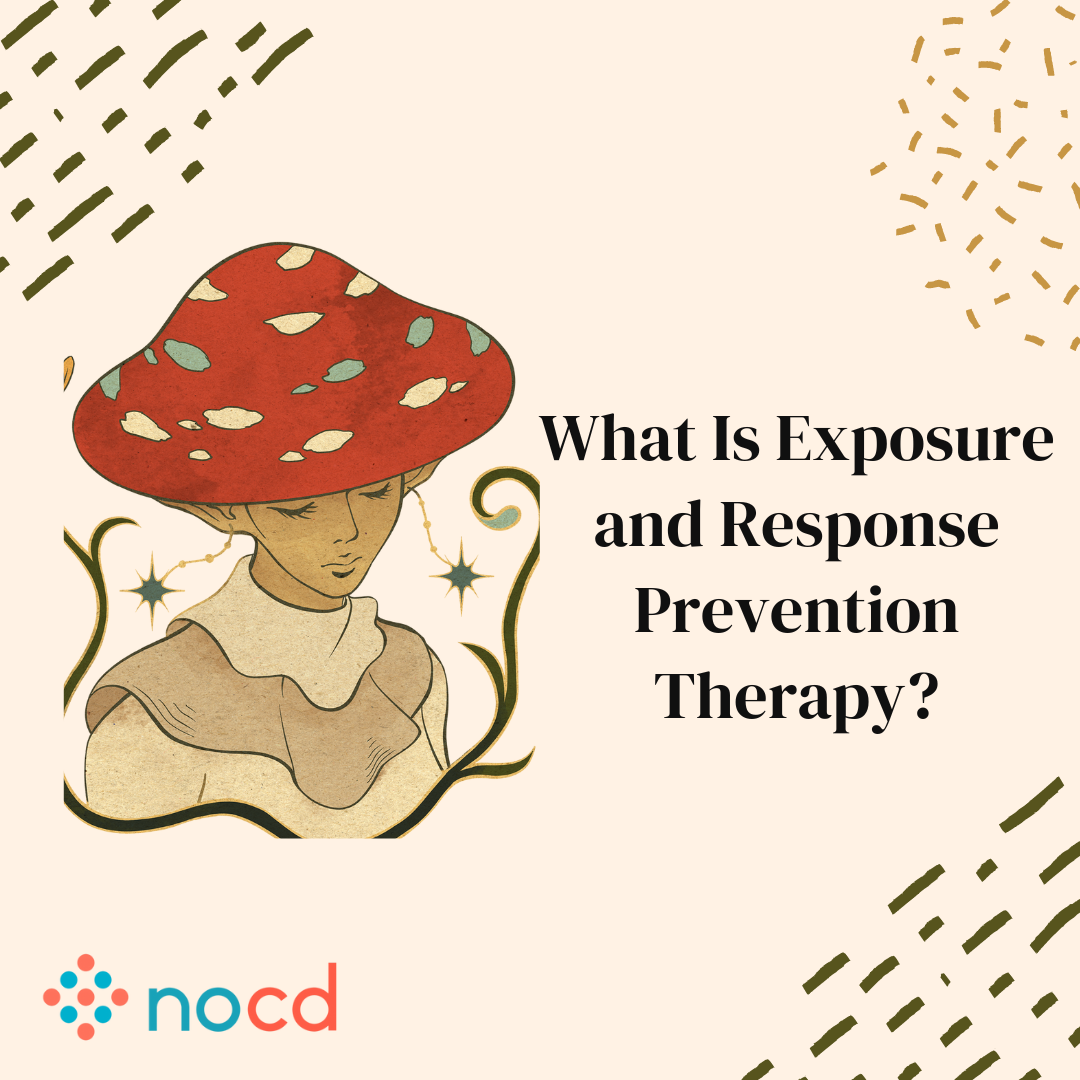
Why is ERP So Expensive? There are hundreds of OCD tests and “OCD quizzes” online. Some aim to help people self-diagnose; others turn obsessive-compulsive disorder into a joke. Either way, a vast majority of these are not helpful and probably create more problems than solutions.




